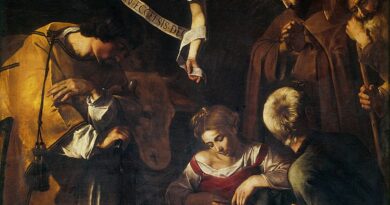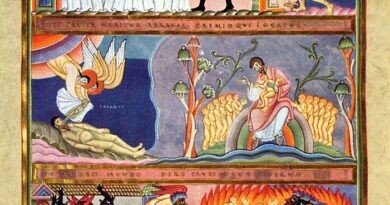Second Sunday of Ordinary Time/C
Massimo Palombella

In today’s Gospel (Jn 2:1-12) Jesus takes part in a wedding feast at Cana in Galilee, where he performs his first miracle by turning water into wine.
Originally this event was part of the Solemnity of the Epiphany – together with the Baptism – as the antiphon to the Magnificat of the second Vespers of the same Solemnity attests: “Tribus miraculis ornatum diem sanctum colimus: hodie stella magos duxit ad praesepium; hodie vinum ex aqua factum est ad nuptias; hodie in Iordane a Ioanne Christus baptizari voluit, ut salvaret nos, alleluia” (Three wonders we celebrate on this holy day: today the star has guided the Magi to the crib, today water is changed into wine at the wedding, today Christ is baptised by John in the Jordan for our salvation, alleluia).
It is interesting to note that Jesus’ first miracle is very simple, it fits into ordinary life and solves a practical problem, the fact that there was no more wine. And it is precisely in our “ordinary” life that the Lord awaits us, in the practical problems, in the annoyances of every day, among the people with whom we find it difficult to relate, in what we would tend to avoid. The Christian God awaits us in our “day-to-day reality”, and any relationship with God that does not lead us slowly to this “reality”, to facing problems, to forgiving, to questioning ancestral patterns, to doing our duty, to continuing to study and update ourselves, to knowing ourselves, to maturing in our relationships with people… is a relationship with a God that we “invent” – but which does not exist – under the illusion that we are punctually “doing” well. The relationship with the Christian God implies – like any true human relationship – a trust, a “handing over”, a doing “whatever” He asks of us. It is only in this perspective that we can begin to feel the aftertaste of that “life in abundance” that we so desire.
The Offertory antiphon for today’s celebration is taken from Psalm 65 (Ps 65, 1. 2. 16) with the following text:
Iubilate Deo universa terra, psalmum dicite nomini eius.
Venite et audite, et narrabo vobis, omnis qui timetis Deum,
quanta fecit Dominus animae meae, alleluia.
Sing joyfully to God all the earth; let the entire earth cry out with joy to God;
sing a psalm in honour of his name. Come and hear, all you who fear God,
and I will tell you what the Lord has done for my soul, alleluia).
The attached music, in Gregorian Chant, is taken from the Graduale Triplex published in Solesmes in 1979. The interpretation is by the “Mönchsschola der Erzabtei St. Ottilien” conducted by Johannes Berchmans Göschl.
A blessed Sunday and heartfelt greetings.


